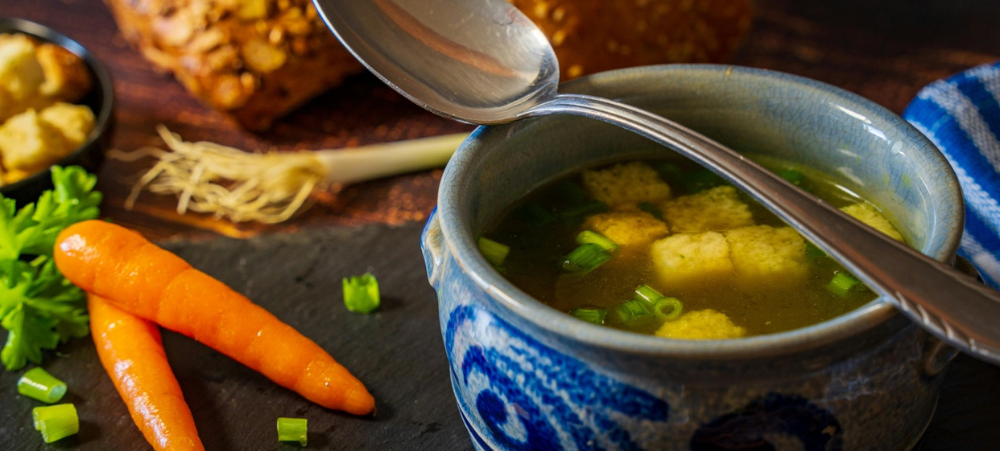If your diet gave you high cholesterol, it can lower it, too! It’s easy to eat your way to an alarmingly high cholesterol level. The reverse is true, too — changing what you eat can lower your cholesterol and improve the armada of fats floating through your bloodstream. Different foods lower cholesterol in various ways. Here are the top foods to lower your cholesterol and protect your heart.
IN WITH THE GOOD
Soluble fibre
Soluble fibre binds cholesterol in the digestive system and drags them out of the body before they get into circulation. This type of fibre reduces LDL cholesterol levels more than a diet low in saturated or trans fats alone. Five to 10 grams of soluble fibre a day reduces LDL cholesterol by 5%. Barley, sweet potatoes, peas, carrots and beans are great sources of soluble fibre. They also take a while for the body to digest, meaning you feel full for longer after a meal. Bananas, apples, strawberries, prunes, citrus fruits are rich in pectin, a type of soluble fibre that also lowers LDL cholesterol.
Omega-3 containing fish
Eating fatty fish e.g. mackerel, trout, sardines, pilchards, snoek, salmon – two to three times a week can lower LDL cholesterol in two ways: by replacing meat, which has LDL-boosting saturated fats, and by delivering LDL-lowering omega-3 fats. Omega-3s can reduce blood pressure, risk of blood clots and triglycerides (fat in the blood that increases cholesterol) in the bloodstream and also protect the heart by helping prevent the onset of abnormal heart rhythms. In people who have already had heart attacks, fish oil — or omega-3 fatty acids — may reduce the risk of sudden death.
Seeds
Flax seeds have been shown in several meta-analyses to reduce total cholesterol and LDL cholesterol by 5–15%, reduce Lipoprotein (a) by 14% and triglycerides by up to 36%. Flax seeds are anti-inflammatory; it is a source of fibre, lignins as well as phytoestrogens that further protects against heart disease. The dose required for these effects is between 14 to 40 grams of flax seed per day. Important to note is that these health properties do not apply to flax seed oil. Chia seeds at a dose of 25 g per day is also good for cholesterol lowering. Sesame seeds at 40 g per day reduces LDL cholesterol by 9%.
Unsaturated fats or plant fats
A number of studies shows that eating nuts and avocados is good for the heart. Rich in mono (MUFA) – and polyunsaturated (PUFA) fatty acids, both can lower LDL cholesterol and they have additional nutrients that protect the heart in other ways.
All nuts are high in calories, so a small handful will do. Make sure the nuts you eat aren’t salted or coated with sugar. To avoid eating too many nuts and gaining weight, replace foods high in saturated fat with nuts. For example, instead of using cheese, meat or croutons in your salad, add a handful of walnuts, cashews or almonds. Another good source of MUFAs is olive-, canola- and avocado oil. Try using these oils in place of other fats in your diet to get its heart-healthy benefits. Add it to a marinade or mix it with vinegar as a salad dressing. Both avocados and these oils are high in calories, so don’t eat more than the recommended amount (as indicated by your dietitian).
Soy
Eating soybeans and foods made from them, like tofu, soy mince, soy yoghurt and soy milk, was once touted as a powerful way to lower cholesterol. Analyses show that the effect is more modest — consuming 25 grams of soy protein a day (300g of tofu or 2 ½ cups of soy milk) can lower LDL cholesterol by 5 percent.
Sterols and stanols
Foods are usually fortified with sterols and stanols and these plant compounds interfere with the body’s ability to absorb cholesterol from food. Some margarines and yogurt drinks come with added plant sterols and can help reduce LDL cholesterol by 5 to 15 percent. However, for most people, it is not possible to achieve the optimum intake of 2g per day from foods. For example, the recommended daily dose can be obtained by using 25g (5tsp) Flora PRO.ACTIV spread per day that could be detrimental if you are watching your weight. Fortunately, there are also supplements available that are worth trying.
Pomegranate
Pomegranate is a potent antioxidant that lowers oxidation of LDL cholesterol. Consuming 250ml of pure pomegranate juice per day or one to two cups of pomegranate seeds is recommended.
OUT WITH THE BAD
Harmful LDL cholesterol creeps upward and protective HDL cholesterol drifts downward largely because of diet and other lifestyle choices. Genes play a role, too — some people are genetically programmed to respond more readily to what they eat — but genes aren’t something you can change. Here are things you can change.
Saturated fats
Typical sources of saturated fat include animal products, such as red meat, whole-fat dairy products, eggs, and also a few vegetable oils, such as palm oil, coconut oil, and cocoa butter. Saturated fat can increase your levels of “bad” LDL cholesterol. But it has some benefits, too — it lowers triglycerides and nudges up levels of “good” HDL cholesterol. The role of saturated fat in heart disease is currently under debate. For now, it’s best to be sensible and manage your intake of saturated-fat-rich foods.
Refined carbohydrates
Increased refined carbohydrate intake may be more important in having a detrimental effect on cholesterol levels than saturated fats. Refined carbohydrates have adverse effects on insulin resistance, LDL and HDL cholesterol as well as triglycerides levels, thus contributing to coronary heart disease risk more than saturated fats.
Trans and hydrogenated fats
The right amount of these fats are zero! Trans fats are a by-product of the chemical reaction that turns liquid vegetable oil into solid margarine or shortening and that prevents liquid vegetable oils from turning rancid. These fats, often found in shore-bought cookies, doughnuts, crackers, cakes, pies have no nutritional value — and we know for certain they are bad for heart health. Trans fats increase LDL cholesterol and triglyceride levels while reducing levels of HDL cholesterol.
Food labels report the content of trans fats, but, unfortunately, only in foods that contain at least one gram per serving. That means you could be getting some trans fats in a number of foods, which could add up to enough trans fats in a day to be unhealthy and increase cholesterol. If a food label lists “partially hydrogenated oil,” it contains trans fat, and it’s best to avoid it.
Don’t be a couch potato
Being overweight and not exercising affect fats circulating in the bloodstream. Excess weight boosts harmful LDL cholesterol, while inactivity depresses protective HDL cholesterol. Losing weight (if needed) and exercising more reverse these trends.
CHOLESTEROL LOWERING SUPPLEMENTS
If you have high cholesterol and you can’t lower it enough via diet and exercise, or don’t respond and/or don’t want to take a statin drug, you may be tempted to try nutraceutical supplements that claim to lower cholesterol. Studies have shown that a combination of diet and nutraceutical supplement are useful and effective in managing cholesterol levels. Here’s a rundown of some of them.
Fiber supplements
Psyllium and beta glucan, are both sources of soluble fibre (it is sold as a laxative and fibre supplements) which can lower LDL cholesterol 5 to 15 percent and has other heart-healthy effects.
Policosanol
Policosanol, derived from sugar cane or beeswax, seems to decrease cholesterol the same way as a statin would. It reduces cholesterol production in the liver and increase the breakdown of LDL cholesterol. It also decreases the stickiness of particles in the blood known as platelets, which might help reduce blood clots. The verdict on policosanol are inconclusive, there have been some studies that find it effective. Policosanol might slow blood clotting and taking policosanol along with medications (Anticoagulant / Antiplatelet drugs) that also slow clotting might increase the chances of bruising and bleeding. Policosanol is not recommended at this time for the treatment of any form of dyslipidaemia.
Red yeast rice extract
Another popular cholesterol-lowering supplement is red yeast rice. Used in Asia as a heart remedy, the extract is made by fermenting red yeast on rice. Its main compound, monacolin K, lowers cholesterol production in the liver. There is some evidence that red yeast rice (dose of 2400-4800mg/day) can help lower your LDL cholesterol. Red yeast rice extract is an excellent alternative to individuals not wanting to take statins. Make sure the product that you choose is a good quality product and highly purified.
Omega-3
Should you dislike fish or have difficulty eating adequate amounts of other omega-3 containing foods, you can make use of an omega 3 supplement. Do check the EPA and DHA content on the label and not the total omega 3 fatty acid content. Doses of 3 g per day of combined EPA and DHA are recommended to reduce cardiovascular events.
Niacin
This B vitamin, taken in very large doses (1 to 4 grams a day), is actually a drug and is sold by prescription as well as over the counter. It lowers LDL cholesterol by up to 30 percent, but unlike statins, it also substantially boosts HDL cholesterol and reduces triglycerides as well as lipoprotein (a). A common side effects is flushing. The no flush niacin (inositol hexanicotinate) does not improve cholesterol levels, and is not recommended. Niacin-induced flushing is minimized by increasing the dose gradually, taking on a regular basis without missing doses, taking it with meals, avoiding alcohol within 4 hours of ingestion of niacin.
Whey protein
Whey protein, which is one of two proteins in dairy products (the other is casein) may account for many of the health benefits attributed to dairy. Studies have shown that whey protein given as a supplement lowers both LDL and total cholesterol. Add it to smoothies for some extra protein – also helps to keep you fuller for longer and improve recovery following an intense training session.
Green Tea Extract & Green Tea (EGCG)
A meta-analysis of human studies of 14 trials show that green tea extract (at a dose of 224–674 mg per day or 7 cups of green tea per day) reduced total as well as LDL cholesterol. The recommended dose is a standardized EGCG extract at 500–1000 mg per day to see results. The University of Maryland Medical Centre, point out that taking high doses of green tea over a long period may cause symptoms such as dizziness, heart palpitations, insomnia and irritability.
IMPORTANT: If you plan on trying one of these supplements, tell your doctor, so he/she can monitor effects. If you’re already taking a statin, a few of these may help you stay on a lower dose of the drug. Don’t assume that all supplements are safe because they are “natural” and available without a prescription. Some can interact with medications, including cholesterol-lowering medication.
When you consult Paarl Dietitians, you will receive individual advice and eating plan based on your specific problem that will suit your lifestyle. Each consultation includes an individual assessment since there is no ‘blueprint’ diet that will work for everyone. We use the most up to date public health and scientific research on food, health and disease, which we translate into practical solutions and guidance to enable people to make appropriate lifestyle and food choices for healthy living. When you consult us, you are protected from misleading treatments and misinformation.
- WHY DO WE GET CRAVINGS? - July 15, 2021
- COVID-19 Immune Boosting Claims Debunked - July 20, 2020
- Vegan – Is it healthier? - July 13, 2020





